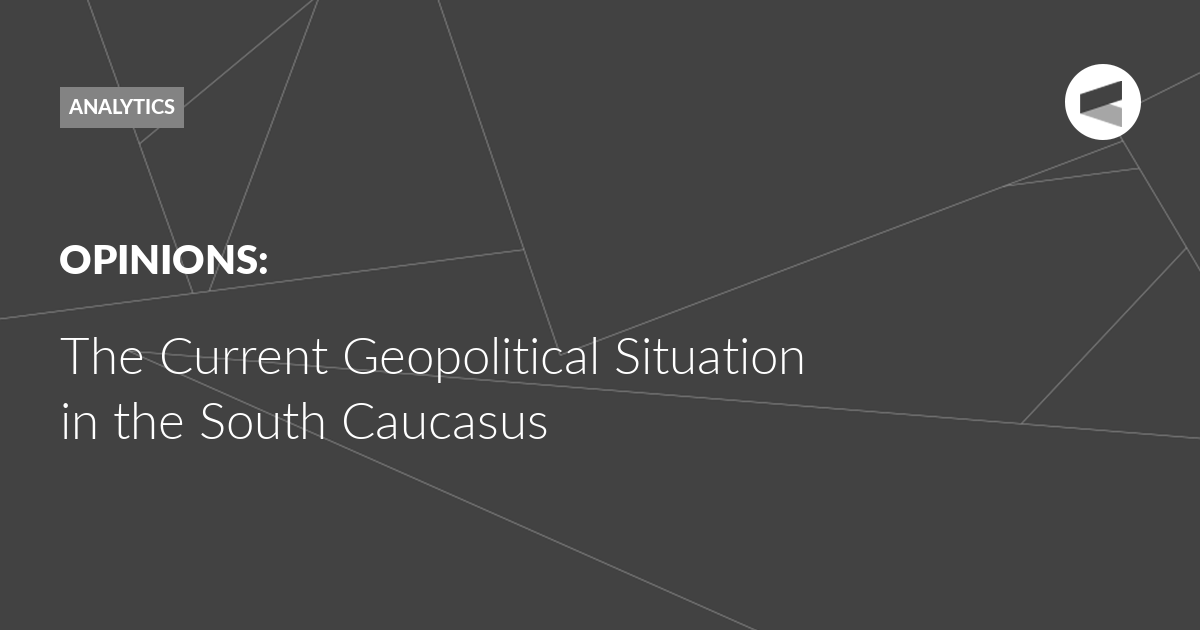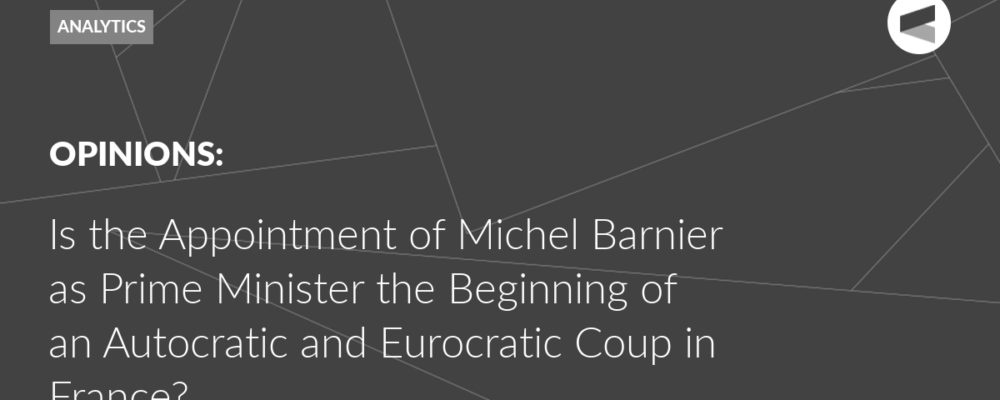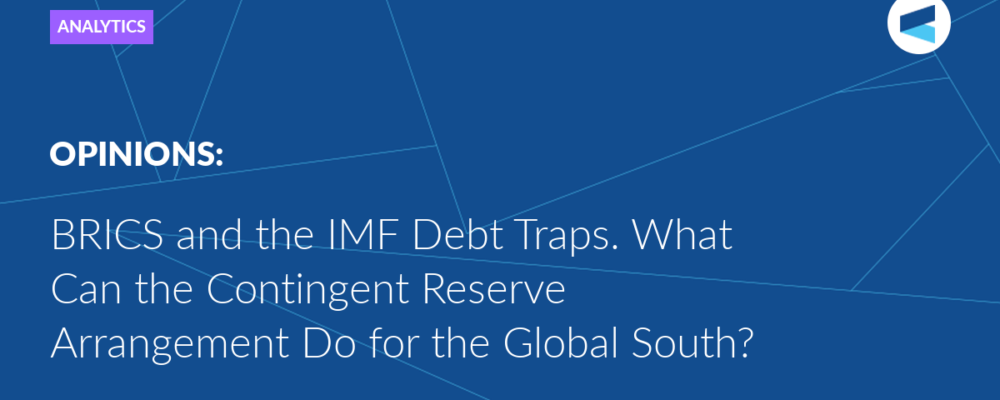The South Caucasus has traditionally been one of the most dynamic regions of Eurasia. As a result of the collapse of the USSR, the former republics of Soviet Transcaucasia have suffered the majority of the region’s ethnopolitical conflicts between de facto states. It was in this region that in August 2008 revised the Belovezha Accords as the key guidelines for post-Soviet demarcation, when the administrative borders between the former Soviet republics were taken as the basis for interstate borders, Sergey Markedonov writes.
However, in the period from 2020 to 2025, the number of geopolitical changes in the South Caucasus is so great that it allows us to raise the question of qualitative transformations of the regional order.
New balance of power in the region
First of all, it should be noted that during this short period, the military-political status quo changed twice. The Second Karabakh War (September-November 2020) radically broke a balance of power that had held for 26 years! The significance of this event goes beyond a single ethnopolitical conflict. It is not only that Azerbaijan took revenge for past defeats and regained control over most of its lost territories.
There was a significant increase in Turkey’s role in the Caucasus. For the first time, a state not historically associated with the USSR contributed to the radical transformation of post-Soviet geopolitical realities. The immediate consequence of Turkey’s involvement in the Karabakh conflict was not only the strengthening of the Turkish-Azerbaijani strategic alliance in the region, but also the build-up of military-technical cooperation between Turkey, Ukraine and the Central Asian states on the one hand, and the activation of the Organisation of Turkic States on the other. In September 2023, Azerbaijan established full sovereignty over the territory of Nagorno-Karabakh, which led to the early withdrawal of the Russian peacekeeping force seven months later. Russia’s traditional methods of influence as an exclusive moderator of the peaceful settlement of the conflict between Azerbaijan and Armenia have ceased to work. On the contrary, Turkey’s influence on both sides of the conflict has strengthened (in the first case, through increased military-political interaction, and in the second, through diplomatic pressure with preconditions in the form of signing an Armenian-Azerbaijani peace agreement).
The strengthening of Turkey has caused serious concerns on the part of Iran, which, on the one hand, has tried to expand its diplomatic presence in Armenia (opening of a consulate in Kapan in October 2022), and on the other hand, to clearly outline its “red lines”, presenting the opening of the Zangezur corridor (a road that would connect “core Azerbaijan” with Nakhichevan through the Syunik region in the south of Armenia) as a threat to its national interests.
In 2020, many observers thought that the influence of the US and EU on the Caucasian processes would weaken.
But these assumptions did not come true. With the start of the Special Military Operation in Ukraine, the West effectively froze cooperation with Russia on the Armenian-Azerbaijani settlement, as the OSCE Minsk Group became completely ineffective. If earlier the differences between Moscow, Washington and Brussels concerned the prospects of granting Georgia NATO member status, then after 2022 the Armenian-Azerbaijani settlement became another battlefield, albeit fortunately only a diplomatic one.
Armenia, Georgia and Azerbaijan: “Changing landmarks” in foreign policy
The acceleration of geopolitical dynamics in the South Caucasus has led to the fact that all established analytical schemes and explanatory models for describing the balance of power in this part of Eurasia have lost their relevance. Until 2020, Armenia was considered an outpost of Russia in the South Caucasus. But in January 2025, Yerevan signed a Charter on Strategic Partnership with Washington. Almost in parallel with this, the parliament and government began discussing specific steps to organise a referendum on European integration. The Armenian leadership does not simply criticise the CSTO (such negative attacks occurred in previous times as well), it characterises this structure as a threat to national security. Against the backdrop of this incessant criticism, the Russian military presence in the republic is being curtailed (border guards are being withdrawn from Yerevan’s Zvartnots airport and from the checkpoint on the Armenian-Iranian border). This presence lasted for 32 years, but today it has been all but wrapped up. Only the 102nd base in Gyumri remains. The desire to join the EU, already designated as an important foreign policy goal, also calls into question Armenia’s membership in the EAEU. If European integration proceeds at an accelerated pace, the issue of Yerevan’s withdrawal from the Eurasian Economic Union will be on the agenda.
On the contrary, Georgia, which was considered the main conductor for the interests of the US, EU and NATO in the Caucasus, is demonstrating another, more complicated foreign policy agenda. After the European Parliament came up with a resolution in which it actually did not recognise the parliamentary elections in that country, Tbilisi announced the “freezing” of negotiations on European integration. The Charter on Strategic Partnership with the United States, signed back in January 2009, was suspended at the initiative of Washington. Western partners criticise Georgia for copying Russian legislation on foreign agents and support for “traditional values”, and Russia is abolishing visa requirements for Georgian citizens (which lasted for almost 23 years!) and resumed direct flights. In September 2023, Georgia abolished entry visas for Chinese citizens, and in February 2024, the Chinese provided the opportunity for a thirty-day stay for Georgian citizens in their country without visas. At the official level, Georgian-Chinese relations were called strategic. At the same time, the Georgian-style diversification does not mean that Tbilisi has completely rejected European and Euro-Atlantic integration. The country’s leadership has demonstrated its readiness to restore damaged relations, but these goals themselves seem to have ceased to be perceived as an idee fixe.
Azerbaijan has always occupied a special place in the regional palette of the South Caucasus, carefully balancing between different centres of power, maintaining constructive relations with the West, Turkey, Israel, Iran, and Russia. Against the backdrop of a sharp cooling in Russian-Armenian relations and thanks to Moscow’s de facto neutrality in the military confrontations between Baku and Yerevan in 2020 and 2023, it seemed that Russia and Azerbaijan were simply doomed to rapprochement. This was evidenced by the signing on February 22, 2022, of the Moscow Declaration on Allied Cooperation (literally the day after Russia recognised the Donetsk and Lugansk People’s Republics and 2 days before the start of the SMO). But in practice, this “geopolitical compensation” did not work out. The tragedy in the skies over Aktau (the crash of the Azerbaijan Airlines plane), for which Baku has blamed Russia, showed the ambiguity of bilateral relations and the fragility of their strategic partnership.
It is obvious that this event itself did not reveal, but only more clearly outlined the existing differences in the approaches of the two states (from the Ukrainian issue to the Middle East). It is also worth paying attention to the build-up of the Baku-Ankara strategic link. The Shusha Declaration of 2021 took it to a new level; the parties assumed serious mutual obligations in the field of defence and security. All this led to the strengthening of Turkey’s role in the Caspian region as well as Central Asia, and the active promotion of the Organisation of Turkic States as an integration project.
Risks and opportunities for Russia
Thus, the Caucasus is changing dramatically before our eyes. Five years ago, it could not only be called a Russian sphere of special interests, but also of priority influence. This position was not shaken by the “five-day war” in South Ossetia and Abkhazia in August 2008, despite Georgia getting unprecedented support from the US, EU and NATO, nor the “four-day war” in Karabakh in April 2016, after which exclusive Russian moderation was recognised by the West, Turkey and Iran. Even the events of 2020, as a result of which a peacekeeping contingent from Russia was deployed on Karabakh soil, were perceived by many in the United States and Europe as a strengthening of Moscow’s position. The logic was as follows: before November 2020, there was no Russian military presence in Karabakh, and afterwards – it appeared.
Today, this exclusive influence is questioned by both external players and the countries of the region themselves. This does not mean that Russia is leaving the South Caucasus. But the room for manoeuvre has significantly narrowed. Nevertheless, the changing regional geopolitical design, along with new risks, also creates new opportunities for Russia. This is facilitated, first, by a deficit of regional integration, as well as the activation of external players in the absence of unity in approaches to “how we should arrange” the Caucasus. Second, Russia’s economic presence in the countries of the South Caucasus is still significant, despite the emerging crises in relations with Armenia and Azerbaijan and the absence of diplomatic relations with Georgia. Russia is among the top three leading partners of the Caucasian states everywhere! Third, there are security and sovereignty considerations. The main objective is to manage the situation wisely, abandoning inertial scenarios (the “they won’t go anywhere” scheme no longer works). On the contrary, Russia should promote its own version of a peaceful and stable neighbourhood based on pragmatism, and not on geopolitical chimeras.
The Valdai Discussion Club was established in 2004. It is named after Lake Valdai, which is located close to Veliky Novgorod, where the Club’s first meeting took place.
Please visit the firm link to site






